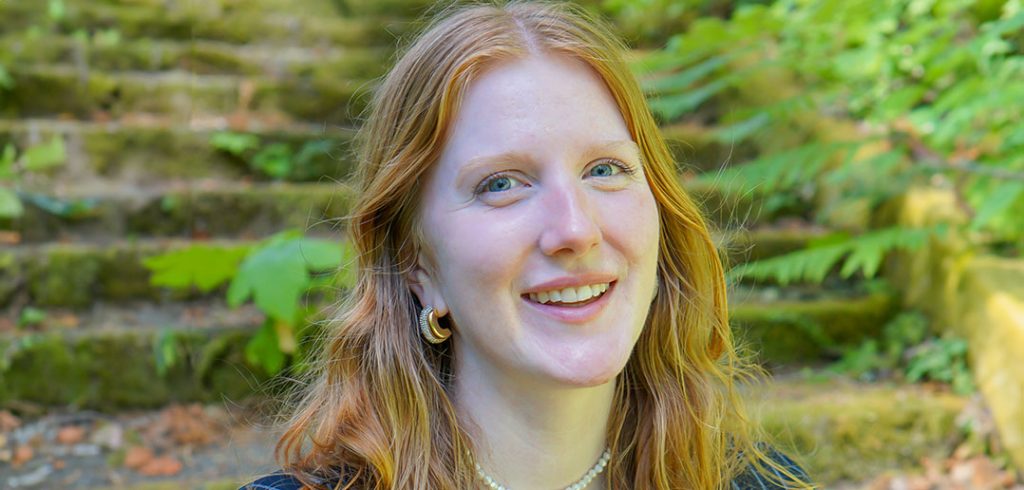A Fulbright scholar works to strengthen democracy
For as long as she can remember, Madalyn Stewart has loved France. From the romance of Paris to the taste of crepes and the melody of the language, the country has lived in her dreams. This year, though, it got real.
The Seattle native recently earned both a Fulbright scholarship and a Phi Kappa Phi fellowship. Now she’s pursuing a master’s degree at Sciences Po in Paris, where she’s studying the Vote Blanc movement, a form of civic participation in which citizens cast a blank vote during elections. What interests her, she says, is the effort it takes to cast a blank ballot.
“You have to actually bring your own little blank note card, and there can’t be writing on it; otherwise, it won’t be counted,” she says, adding that about 2 million people cast blank votes in the last presidential election.
Office of Prestigious Fellowships Helps Fund a Dream
Stewart, who earned a bachelor’s degree in political science and French and francophone studies at Fordham College at Lincoln Center in 2022, was admitted to Sciences Po last year, but she had to defer her admission because she didn’t receive enough scholarship support.
She worked with Fordham’s Office of Prestigious Fellowships to apply for the Fulbright and the Phi Kappa Phi awards. “That all just came to fruition this year—it all really fell into place,” she says.
Why France? When her mother was in her 20s, she took a trip there, and Stewart grew up poring over the negatives and photos. Her father ran a creperie for a few years, and little things like that, she says, kept France in the back of her mind.
When it was time to pick a language in high school, the choice was clear. “And I mean, once I started, I didn’t want to stop,” she says.
At Fordham, she took “classes that weren’t just about French people in France,” but ones that gave her a sense of the politics and their research implications.
“France is one of the countries that doesn’t keep track of race and ethnicity anymore,” she notes, prompting her to wonder “what that means for racial discrimination in the country, and what that means even for myself for research—when you can’t ask people about their race and ethnicity on a survey.”
Every Vote Counts—Here and Abroad
At Fordham, Stewart took a course with Professor Christina Greer, Ph.D., called Racial and Ethnic Politics, and it piqued her interest in voting equity and accessibility. For the final project, students were assigned to explore potential avenues for increasing voter accessibility in Georgia.
“My group looked at free public transportation on Election Day, and because Dr. Greer has all kinds of connections, she got a voice memo from Stacey Abrams thanking us for what we did,” Stewart says. “That was one of the first classes I took that talked about voting accessibility [and it] got me excited.”
The summer after her junior year, Stewart interned with Citizens Union, a nonpartisan organization committed to reforming New York’s city and state governments. As a member (and later president) of the University’s Every Vote Counts club, Stewart helped teach civics to high schoolers and did voter registration and mobilization. She also became involved with Let NY Vote, a statewide nonpartisan coalition working to make registering and voting accessible and equitable for every eligible New Yorker.
Those experiences, plus a senior-year internship with the Brennan Center for Justice, prepared her well for the work she’s doing now. And she’s grateful to Fordham for helping to get her to France to pursue on-the-ground, public impact research.
“If I had to summarize where Fordham goes above and beyond, it’s really connecting me to resources and experiences that, going into school, I didn’t really know existed—or at least never imagined that they would be within my reach,” Stewart says.


